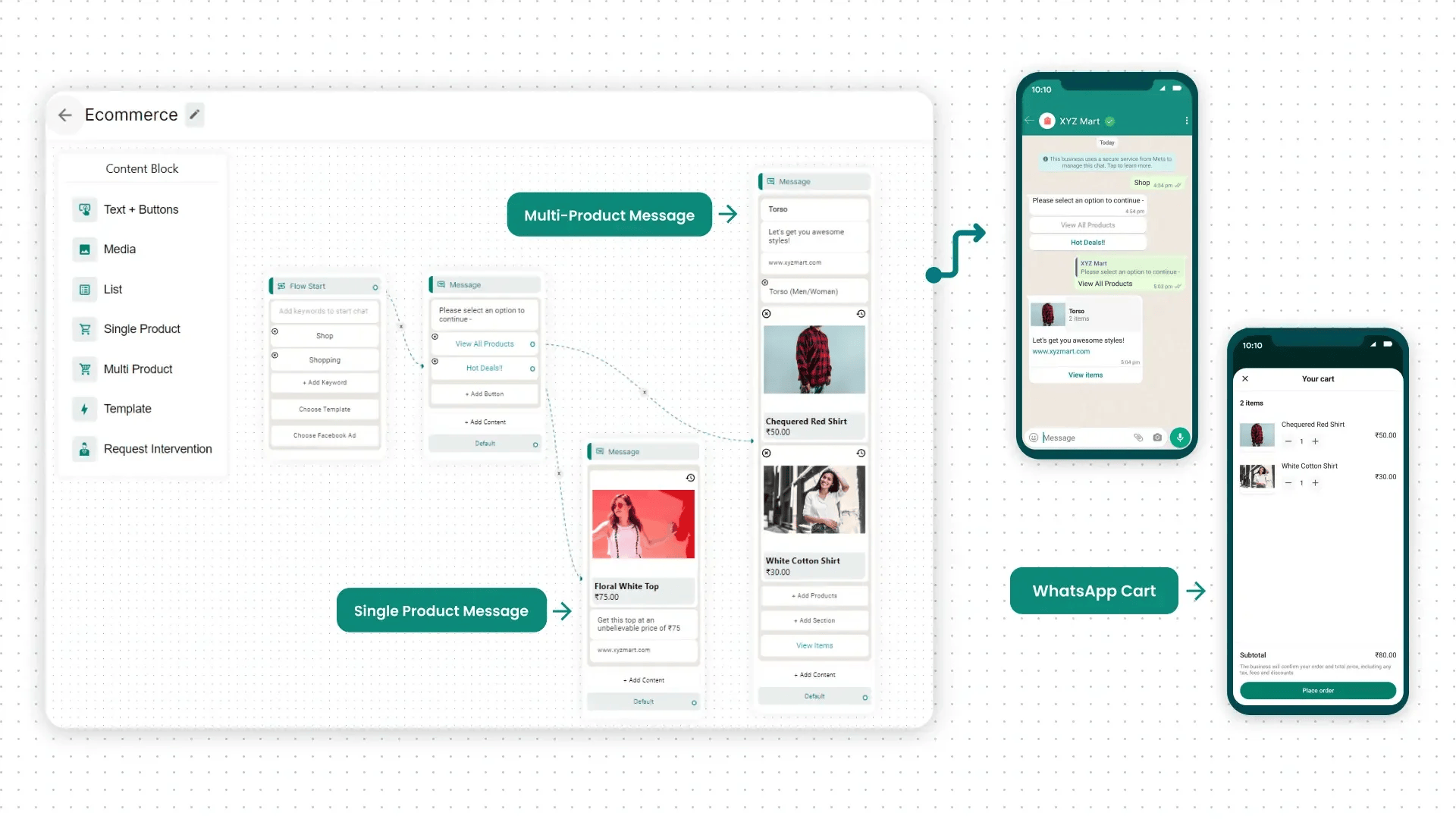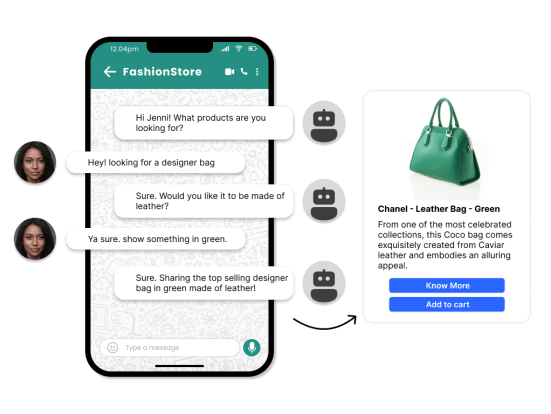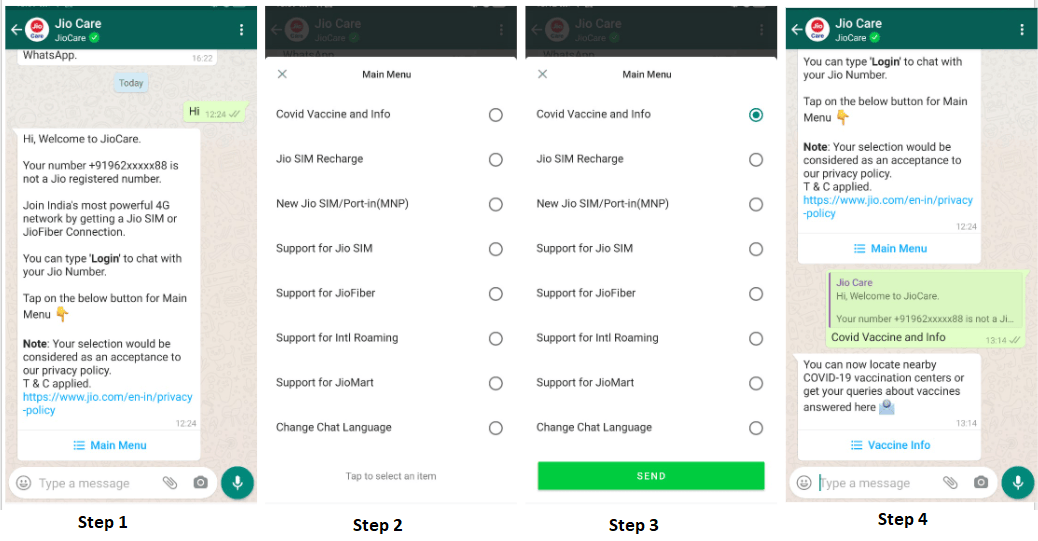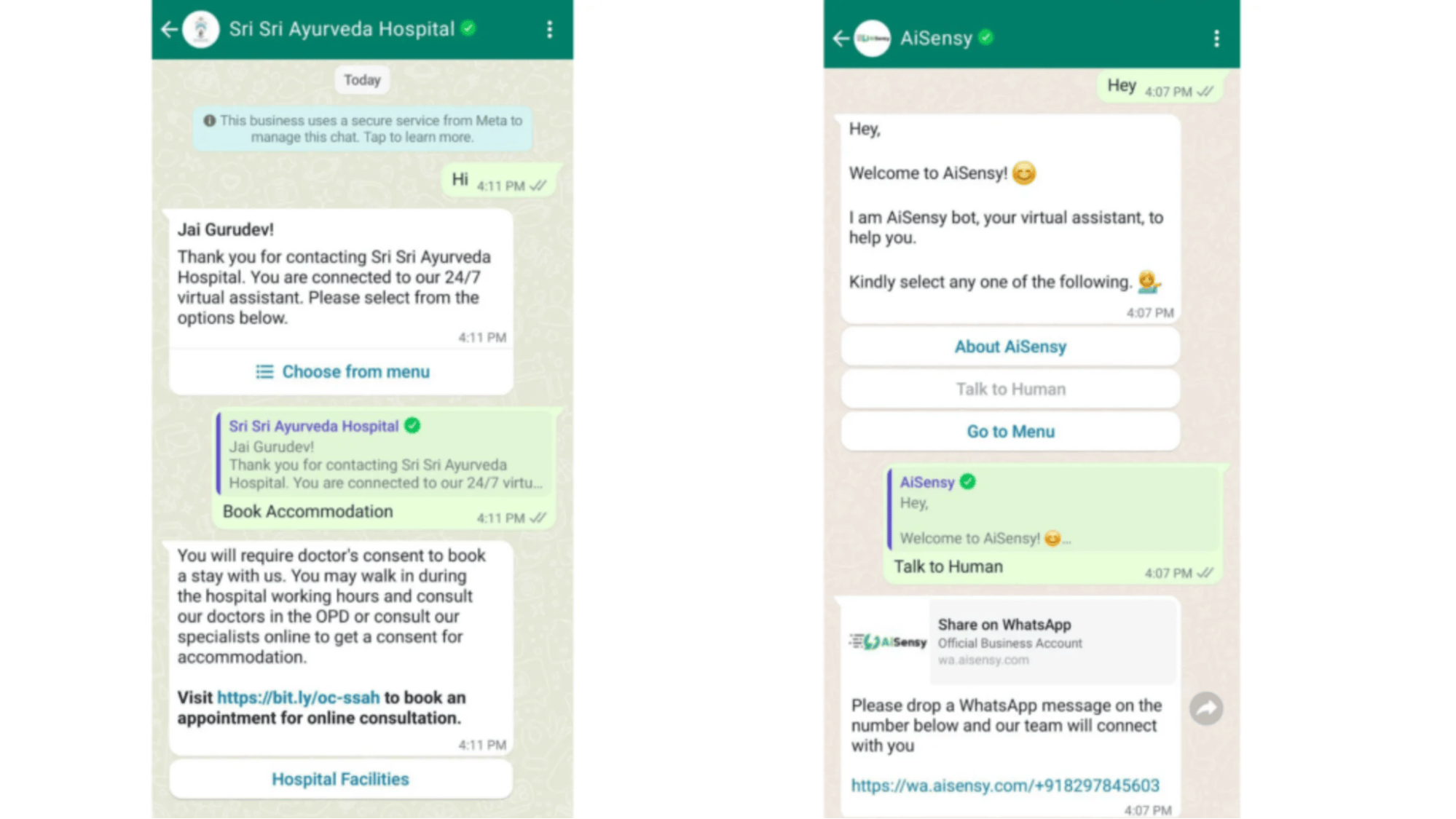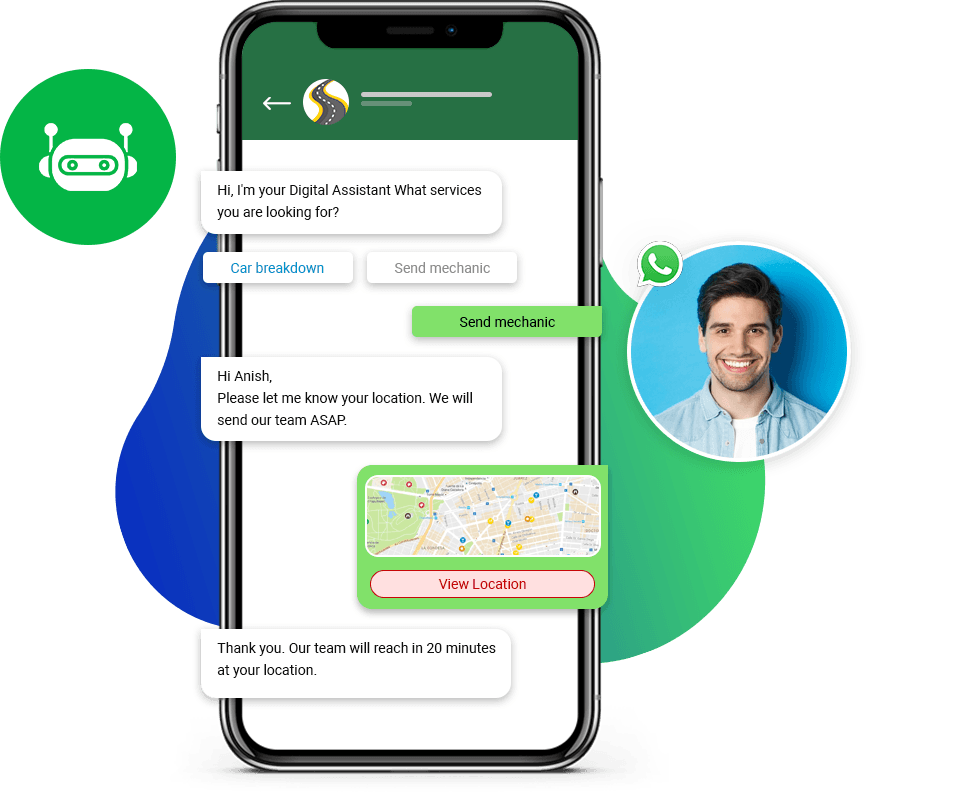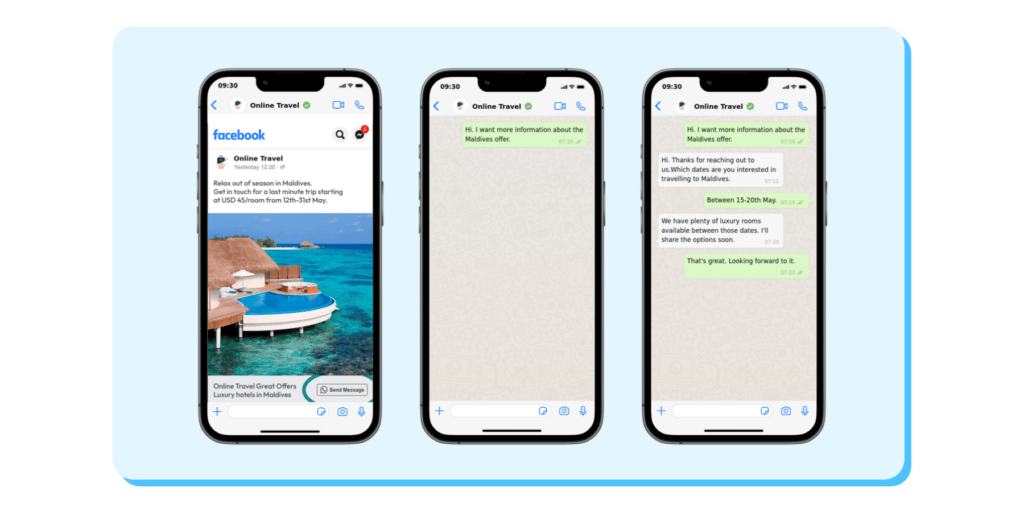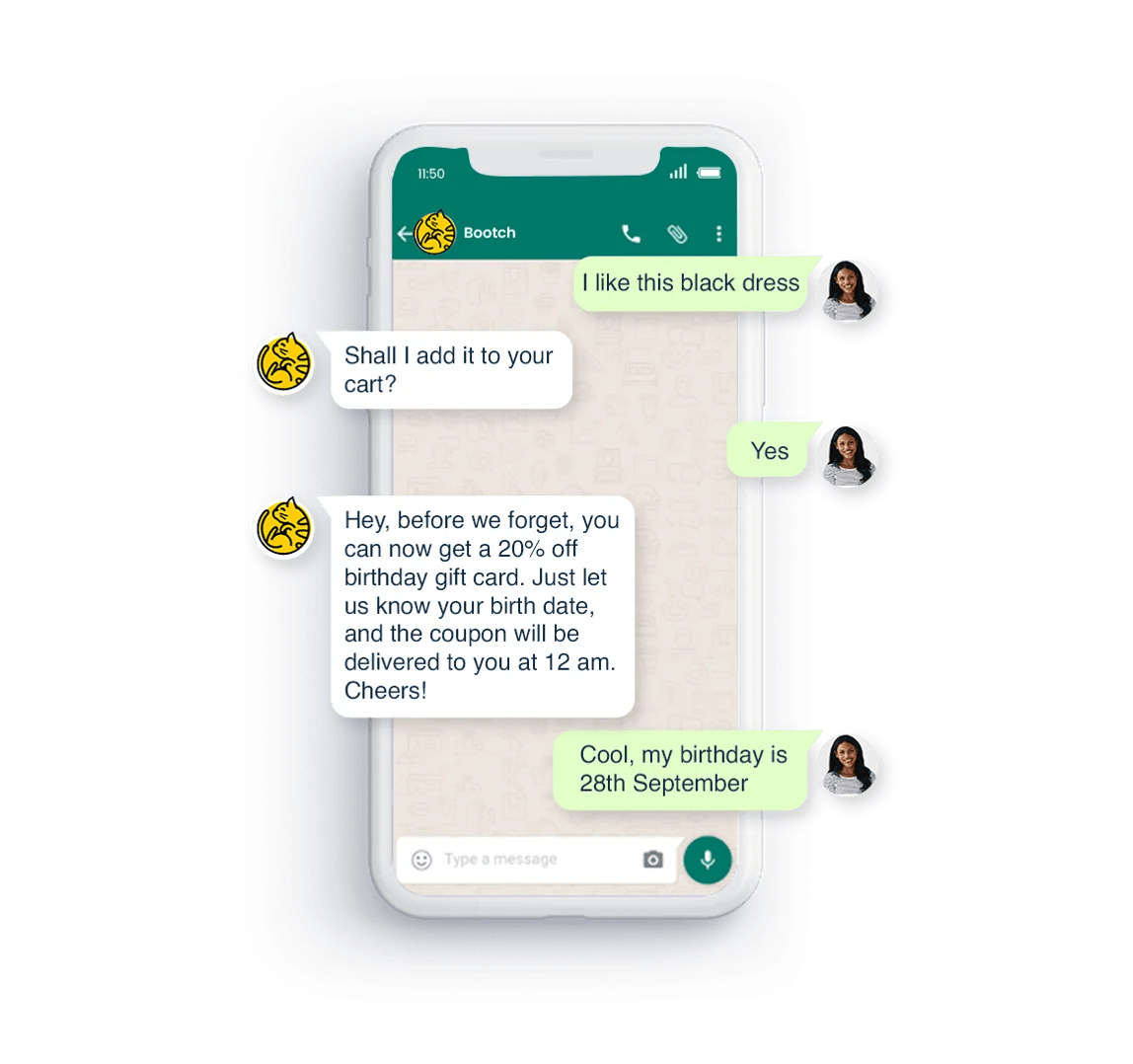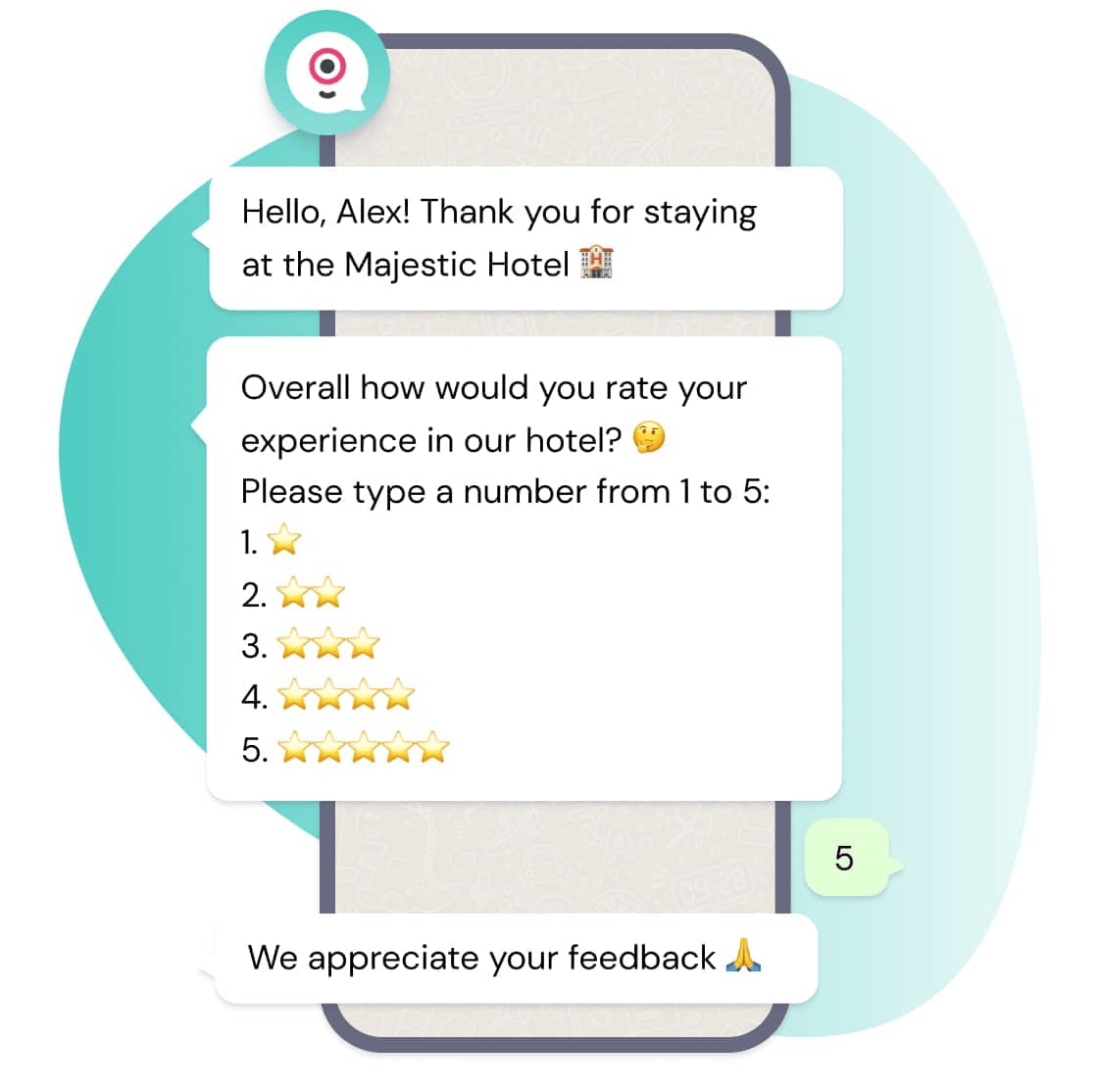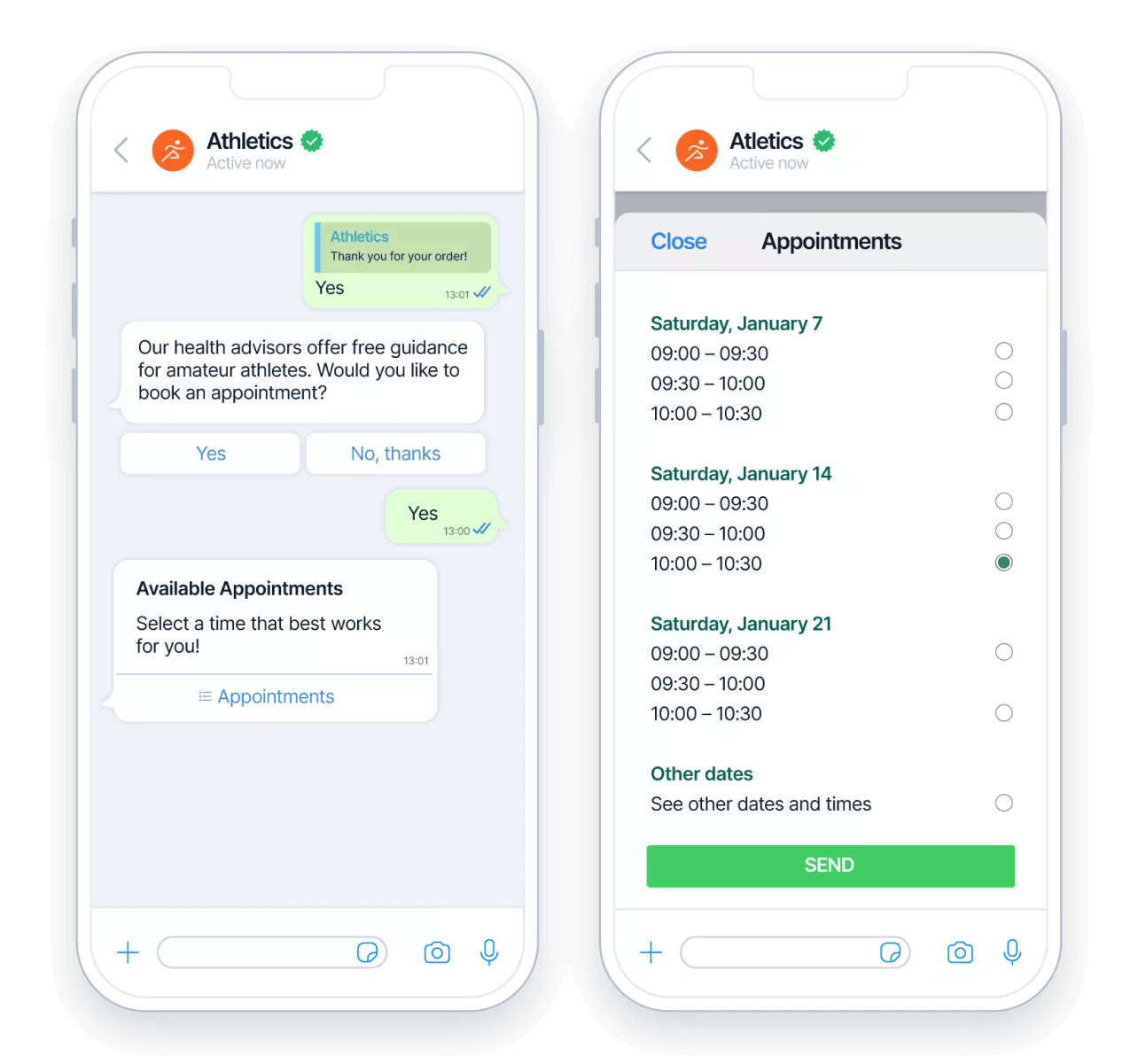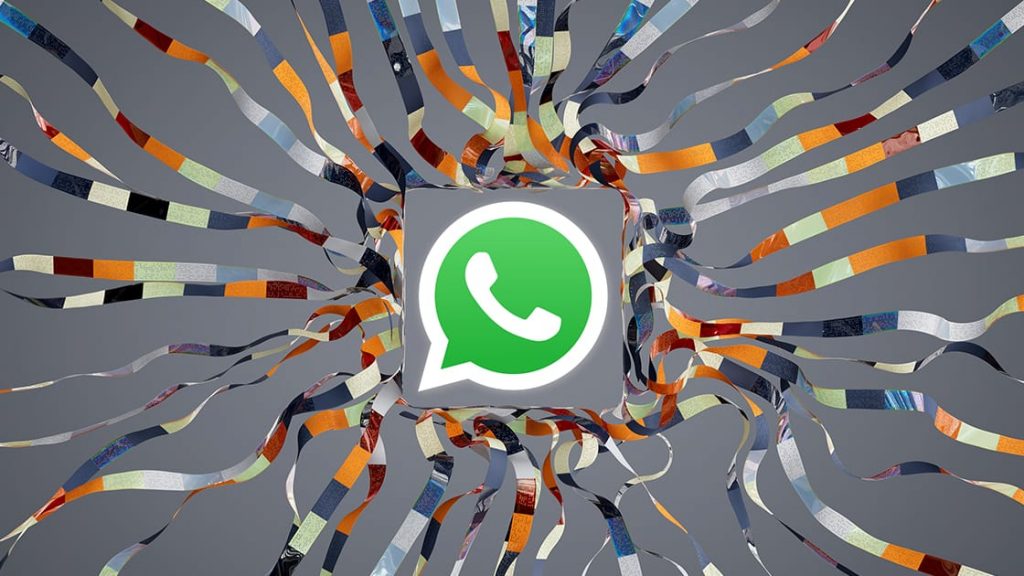
WhatsApp has been gaining relevance as a leading messaging channel for brands for quite some time now. In fact, the application saw a 40% increase in usage during the pandemic, with users sending over 100 billion messages in a day using WhatsApp.
With the advent of OpenAI ChatGPT the implications of using WhatsApp as a digital assistant for businesses have multiplied manifold. Combining ChatGPT’s generative and language-comprehensive capabilities with the ease of interacting with customers anywhere and anytime can enable businesses to boost their marketing communication efforts to the next level.
The integration of AI into WhatsApp is what we call a WhatsApp AI chatbot.
With WhatsApp available across 180+ countries in 20+ languages, global businesses can provide prompt and helpful client support at the customers’ convenience and drive growth by enabling seamless two-way communication between themselves and customers using an AI chatbot integrated into the application. This makes WhatsApp AI chatbots the next big thing, especially with a message open rate of 99% and recorded seen time of less than 5 minutes.
However, creating one can still be challenging since it is more than just the technicalities—a WhatsApp chatbot needs to go beyond codes and commands and create an engaging customer experience.
In this blog, we will discuss what a WhatsApp chatbot is, the benefits of integrating AI chatbots with WhatsApp, the various business use cases of a WhatsApp AI chatbot, and how you can create an AI chatbot that integrates with the WhatsApp Business API.
What is a WhatsApp Chatbot?
A WhatsApp chatbot is the digital version of a dedicated, always-available assistant that ensures your customers never feel ignored. Imagine having your favourite messaging app turn into an interactive companion responding to your questions with its own intelligence—that is exactly what an AI-powered WhatsApp chatbot is.
While chatbots on other platforms automate tasks, a WhatsApp chatbot uses WhatsApp’s familiarity and accessibility to create a seamless connection between businesses and customers. This smart solution can address customer assistance concerns as well as be used to communicate rapid updates on products and services.
With the help of a WhatsApp chatbot, your business can stand out in the digital sphere as you create an engaging experience for customers and increase support efficiency. But keep in mind that the standard WhatsApp Business App isn’t chatbot-friendly; in order to accomplish this feat, you will need to use the WhatsApp Business API.
Benefits of Integrating AI Chatbots with WhatsApp
Artificial intelligence and automation are emerging as driving forces in industries like marketing, sales and customer success.
In fact, based on a report from 2020, 78% of companies of brands said they had already implemented or were planning to implement artificial intelligence and virtual reality to serve customers better.
Moreover, regarding chatbots, the most recognizable application of AI in the customer service sector, 80% of sales and marketing leaders said they were already using these in their CX or plan to do so shortly. This development showcases the potential for the future of AI in marketing, where AI technologies can further revolutionize how businesses interact with their customers.
If these reasons are yet to convince you to invest in building an AI-enabled chatbot for your business, here are five benefits a WhatsApp AI chatbot brings to your business.
- Increased Accessibility: The WhatsApp chatbot is unlike your average help desk; it is available 24/7! It works non-stop to respond to your customer’s questions and requests, ensuring they never feel left in the dark and receive prompt answers. Owing to its user-friendly interface, customers also find connecting with your business effortless using WhatsApp, removing the typical learning curve of introducing new digital tools into their workflow.
- Quick and Efficient Information Delivery: A message on WhatsApp is difficult to ignore, while emails and social media messages may go unread. Whether you give an update, launch a new product, or advertise a sale, WhatsApp chatbots ensure your message is seen first. They save time and money by automating repetitive marketing processes. The WhatsApp bot also quickly answers questions and gives product facts, enabling users to make decisions quickly and with knowledge.
- Personalized Customer Experiences: This genie-like bot can learn from customer interactions and customize responses depending on individual preferences. This approach may strengthen the relationship between you and your customers by giving each conversation a personalized feel. Chatbots on WhatsApp provide a seamless and effective customer support experience with short wait times and quick responses.
- Data Collection and Analysis: Using a WhatsApp chatbot, you can gather and harness customer insights! The WhatsApp bot can collect useful information on the tastes and actions of your customers, giving you the crucial statistics you need to maximize your business plans. AI Chatbots curate experiences tailored to the user by remembering their past interactions, purchase histories, and preferences. Your customers will feel acknowledged and appreciated by these chatbots, whether sharing a tailored offer or making a product recommendation.
- Security Assurance and Multilingual Support: With its dedication to user security, WhatsApp distinguishes itself as a secure application in a world full of cyber threats. Using WhatsApp chatbots for your business automatically ensures that your customer’s data is protected with end-to-end encryption and two-factor authentication. It not only protects private data but also enhances the image of your brand.
Use Cases of WhatsApp AI Chatbot
From providing personalized services to solving customer queries one-on-one, there is a wide range of business use cases where the WhatsApp AI chatbot can apply itself. Let’s check out some of them highlighted below.
WhatsApp Chatbot Use Cases For Sales
Automated Sales
Customers or leads may send you a WhatsApp message with product-related inquiries. They can view the products using your WhatsApp chatbot’s single- or multi-product messages.
We can illustrate this use case by taking a scenario from a fashion store as a useful chatbot example. In response to a customer’s question about the availability of a Chanel handbag, the chatbot uses a single-product message template to present the product. This makes it possible for the buyer to choose the bag, put it in their cart, and finish the transaction. One thing to keep in mind here, though, is to keep constant tabs on your inventory and modify the product catalog as needed to keep customers informed about new or out-of-stock items.
Lead Generation
Companies often need to collect a lot of data from leads to determine whether they fit the ideal customer profile for a certain type of product service. Thus, all leads must go through the tedious process of being qualified. A WhatsApp chatbot can be perfect for this scenario!
Leads can easily select their responses using reply buttons, which speeds up the chatbot’s profile creation. If matches are identified in the listings, the chatbot can assign an agent to help them further; if not, it notifies the user right away. List messages are ideal for presenting customers with a FAQ menu, a takeout menu, a selection of nearby stores or locations, etc., while reply buttons can be used for offering quick choices from a limited set of options, such as reordering a previous order, changing personal details choosing payment details, and more.
WhatsApp Chatbot Use Cases For Customer Service
24/7 Automated Customer Support
Customer service is essential, regardless of whether you run an online store or offer services. By integrating a WhatsApp chatbot for your business, you can create automated customer service on your WhatsApp Business, where users can quickly navigate the FAQs and find the answers to their questions.
You can quickly and affordably replace your live agents with an AI-powered WhatsApp chatbot. If the chatbot cannot respond to specific crucial questions, it is advised that there be at least one real agent on hand. A WhatsApp customer service bot is especially helpful if you have customers in different time zones. Most of the labor may be done by a bot, saving you money on hiring customer service agents abroad. Since chatbots are always available, they can respond to queries and issues from clients whenever they arise, saving them time and making sure they don’t have to wait.
Personalized Assistance Through Contextual Responses
Since chatbots can be trained on a particular dataset, they can help businesses forge a more personalized connection with consumers through actions such as referring to them by their name during interactions. This might enhance the customer’s opinion of the company and raise the possibility that they will make a purchase.
It is possible to program chatbots to offer individualized customer support according to the questions they receive. For instance, the chatbot can assist a consumer who is having trouble completing a purchase by offering detailed instructions to help them finish the transaction. Moreover, chatbots can use contextual data to deliver more relevant and useful answers to client questions.
WhatsApp Chatbot Use Cases For Marketing
Lead Generation Through Facebook and Instagram Ads
Numerous enterprises, including e-commerce, tourism, and educational institutions, promote their products and services on Facebook and Instagram. One possible addition to the advertisement would be a button that, upon clicking, would allow customers to speak with the business using the WhatsApp application.
“Direct to WhatsApp Ads” on Facebook can help you drive viewers to your WhatsApp Chatbot so you can interact with them there. You can forget about creating landing pages and websites once you use Facebook or Instagram Ads, as every click directs viewers to your WhatsApp Business account.
You can further configure your WhatsApp chatbot to respond to any and all questions that users may have. By doing this, you may significantly lessen the workload of your customer service representatives while the user receives prompt responses from the chatbot. WhatsApp supports not only text communications but also images, videos, gifs, emojis, documents, voice conversations, and location sharing. By combining these components, you can personalize your customers’ WhatsApp experience and diversify your lead generation strategy.
Product Discovery and Personalized Recommendations
WhatsApp chatbots have become popular among retail businesses as a tool for product discovery. To provide customers with an extensive product list, WhatsApp chatbots can be configured to display individual product IDs from Facebook catalogs. You may also incorporate information on seasonal sales or new items and services as greetings in chatbots.
Furthermore, your team can offer individualized recommendations to returning consumers by integrating your WhatsApp chatbot with your CRM. This will allow you to understand their needs, interests, and past behavior patterns. You can also send notifications about pre orders or sales to prospects who are visiting your website. For example, an eCommerce store owner might tell leads when a new product is coming out or about seasonal discounts to boost sales. This can enhance user engagement and help potential customers feel more connected to and valued by the brand.
Feedback Loop
Getting customer input is one of the best strategies to improve your business. Your WhatsApp bot can follow up with a consumer a few days after delivering a product or service to inquire about their feedback. The chatbot’s interactions can be customized in response to user input. It might motivate satisfied customers to post a review on your website. For others who are not as happy, it can go further to comprehend their perspective.
Through interactive customer engagement with the WhatsApp chatbot, you may gather feedback and perhaps increase response rates compared to traditional survey methods. This approach is easy to use and convenient because it lets consumers take part right from their messaging app. You can use an online tool such as an AI survey generator to quickly create your questions for the data you need. Using the insightful data gathered from these encounters, you may develop your entire business plan to better understand your customers’ expectations, preferences, and behaviors.
Appointment Scheduling
WhatsApp chatbots can expedite appointment scheduling, modification, or cancellation. They can also more efficiently manage waiting lists by sending automatic reminders to ensure patients or clients remember their appointments. For instance, a health clinic could use chatbots to schedule, remind, and confirm customer appointments.
Users can easily schedule appointments through a conversational interface by using WhatsApp chatbots for appointment scheduling, which simplifies the process. When users engage with the chatbot and provide the required information, the bot effectively sets up appointments, streamlining the process and improving user convenience.
Frequently Asked Questions (FAQs)
How Does WhatsApp Support My Business?
Some of WhatsApp’s most common use cases include answering customers’ questions, getting their feedback, sharing timely notifications, offering the latest updates and recommendations, and expediting customer communications.
What Programming Languages are Used To Develop AI Chatbots?
WhatsApp chatbots can be developed using various programming languages that support HTTPS, such as JavaScript, Python, Swift, and Kotlin.
Are WhatsApp Chatbots Free?
Yes, you can create a WhatsApp AI chatbot using Google Dialogflow and deploy it using a WhatsApp-API-based platform.
What are Some Best Practices To Optimize the Design of a WhatsApp Chatbot?
You can start by clearly defining your chatbot’s goal. Once you recognize the requirements of your WhatsApp clientele, you should make sure your chatbot always ends with a clear call to action and has a kind tone and a trustworthy backup message. If you use any WhatsApp API-based platform, you should also ensure it has robust security measures to protect your customers’ data.
